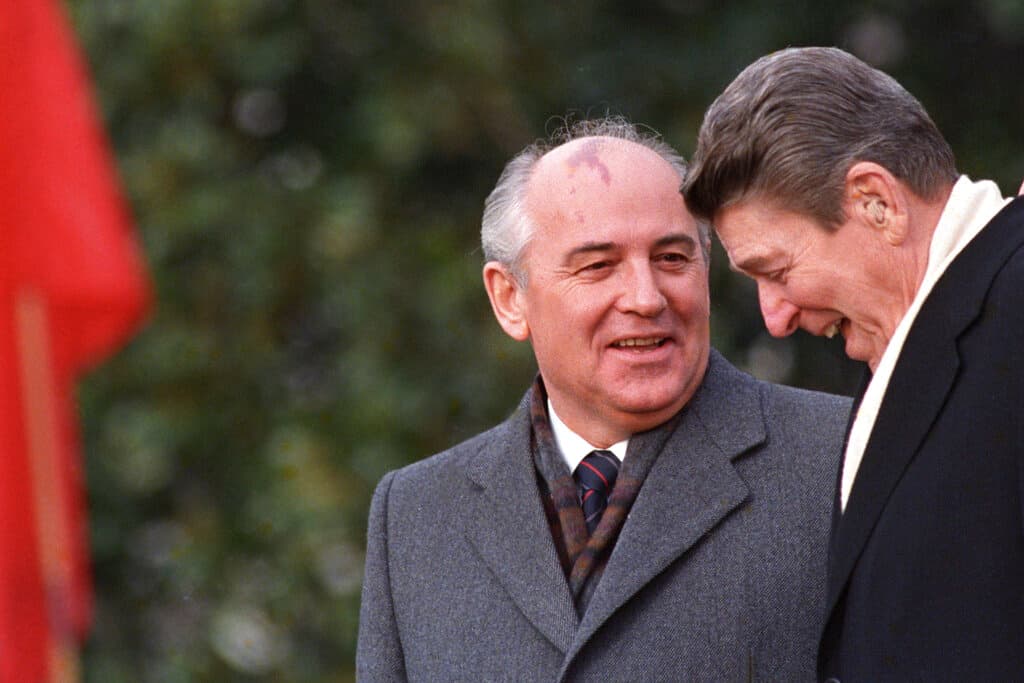Gorbachev, Reagan, and ‘The Day the Earth Stood Still’
Eulogies omitting the Soviet leader’s partnership with President Reagan — and the unique way they found a path to peace — diminish his full legacy.

The last leader of the Soviet Union, Mikhail Gorbachev, is being lauded as a peacemaker upon his death at 91. Yet eulogies that omit his partnership with President Reagan — and the unique way they found a path to peace — diminish his full legacy.
Please check your email.
A verification code has been sent to
Didn't get a code? Click to resend.
To continue reading, please select:
Enter your email to read for FREE
Get 1 FREE article
Join the Sun for a PENNY A DAY
$0.01/day for 60 days
Cancel anytime
100% ad free experience
Unlimited article and commenting access
Full annual dues ($120) billed after 60 days

